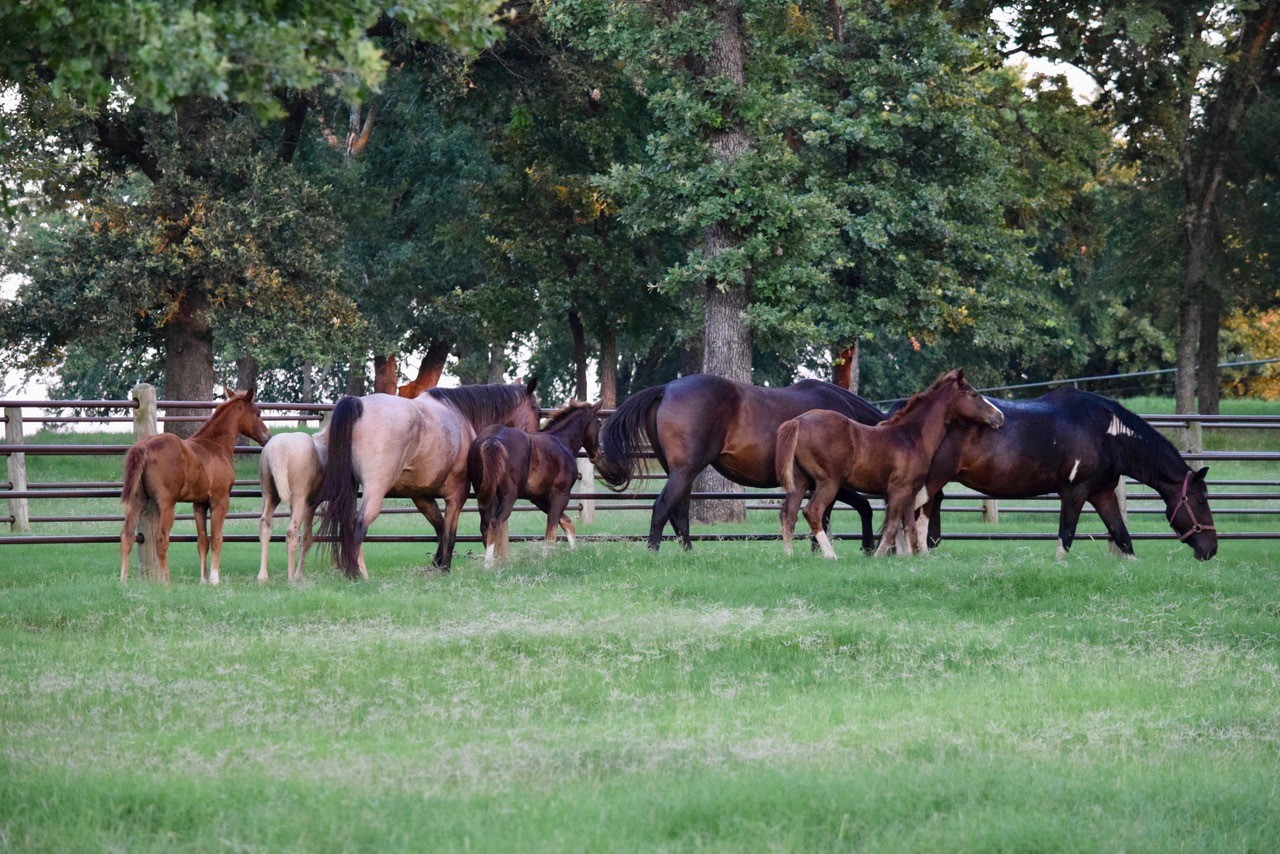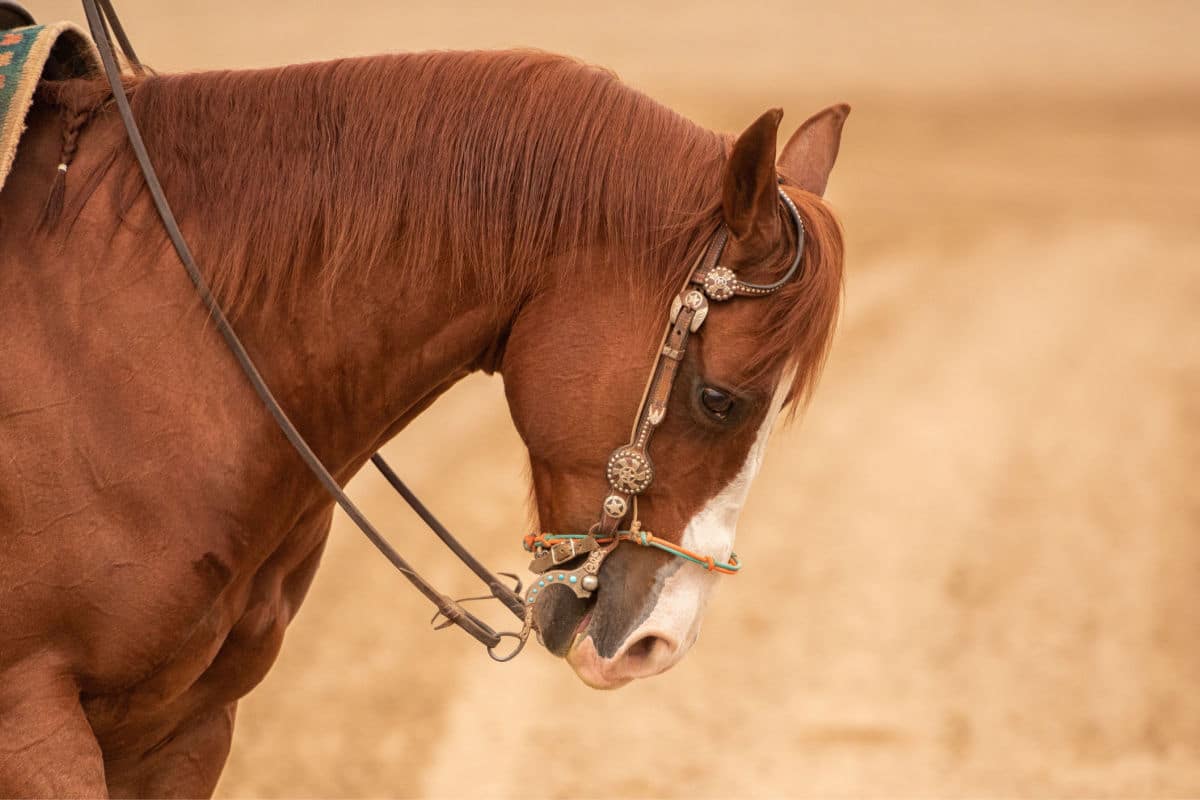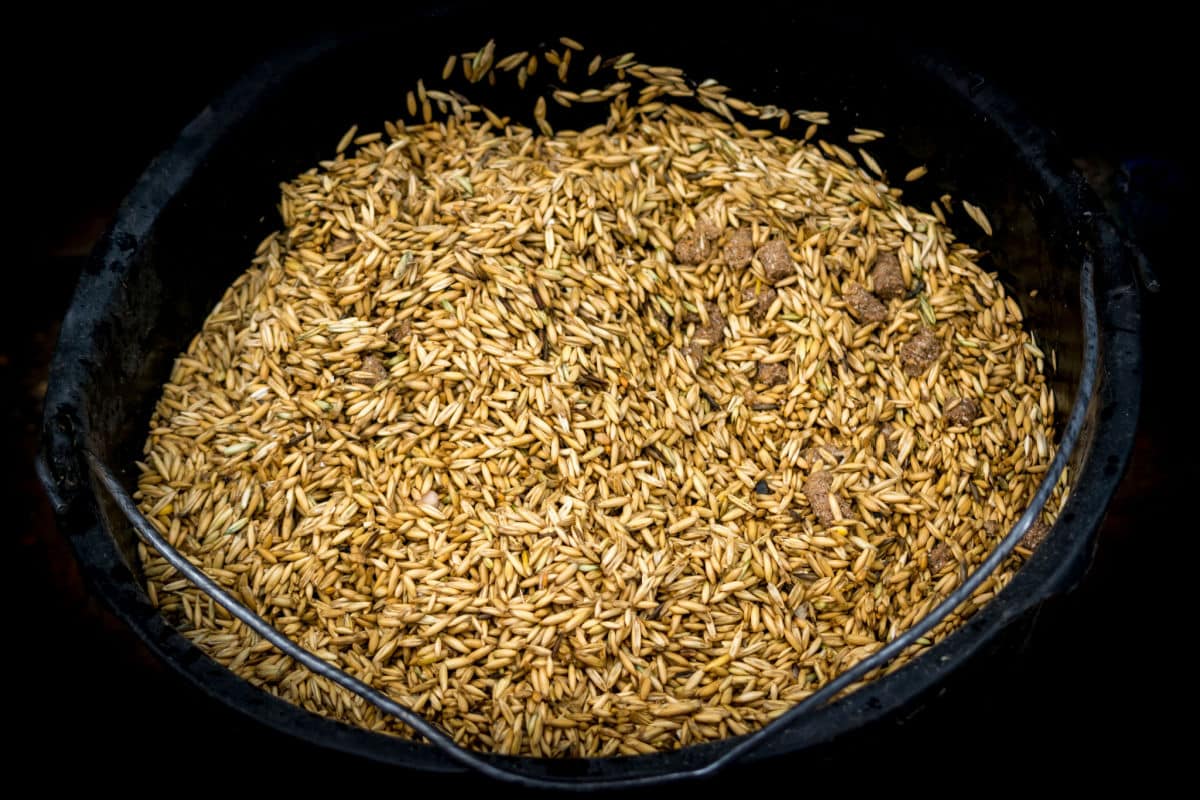In Monday Myths we debunk common misconceptions about a range of topics regarding equine digestive health and care. These are real statements made by real horse people. Have a question or topic you would like to see covered? Submit your idea here.
Statement: The horses in our barn receive the best of care. They don’t struggle with ulcers.
Did you know that most people tend to believe that they are “above average”? Above average drivers. Above average employees. Above average cooks. Above average riders. The problem is that most of us are actually quite average, with only a few who are actually “above.” That’s just the way averages work.
We tend to believe the same about the horses in our care: we are “above average” in the management we provide. And as a result, we tend to erroneously believe that our horses must be healthy.
After all, they get regular hoof care, are on a good deworming program, stalls are cleaned daily, they are groomed and exercised regularly, vaccinated annually, monitored carefully, and fed high-quality grain and hay.
And we assume that because the horses in our barns are cared for in this manner, they can’t possibly have ulcers or other gut issues. But we’re wrong, and our horses may be the ones suffering for it.
Statistics Show Ulcers Probably are Plaguing Some Horses In Your Barn
Statistics from a variety of published research papers show that over 80% of performance horses suffer from gastric ulcers, or ulceration of the stomach lining. In our own original post-mortem analysis published in 2005, we found gastric ulceration in horses to be 88%. Even more importantly, though, we found that 63% of the horses studied had ulcers in the colon (hindgut). Thus, a full 97% of the horses had ulceration somewhere, and 54% had ulceration in both the stomach and colon.
In subsequent studies throughout recent years, we’ve found ulceration incidences to be even higher.
Still think the horses in your barn couldn’t possibly be prone to ulcers?
*Note that while ulcer incidence in an abattoir may be higher, these numbers are still significant enough to reflect a real issue in our barns.
Why Well-Cared For Horses are Still at Risk for Ulcers
Even horses receiving the very best of care may still be at risk for developing ulcers. And they don’t have to be high-performance horses either. Here are some risk factors that are known to negatively impact gi tract health in ways that may lead to ulcers and other issues:
- Changing Ownership. Odds are your horse has exchanged hands several times before ending up with you. Standards of care, or simply the constant changes in management, may have disrupted gi tract health, including potential ulceration. And ulcers can be difficult to eliminate without intervention. It’s possible that, with treatment and ongoing gut support, your good horse may become even greater.
- Feeding grain or concentrates. Even high-quality feeds that are low in starch are difficult for horses to digest properly in the foregut. When undigested starch reaches a horse’s hindgut it may begin a cascade of problems that can lead to ulcers.
- Feeding 2-3 large meals. If your horse is fed grain and hay just twice a day, it’s digestive health is at risk. Large grain meals move too quickly through the foregut to digest fully, and the hours spent with nothing to eat between meals causes a host of other problems. Hours spent with no forage, especially, may be a significant contributor to gastric ulcers.
- Restricting turnout. If a horse spends more than 6 hours per day in a stall, digestive health may be negatively impacted. Restricting the horse’s ability to move as well as access to high-quality forage to munch around the clock are hard on gi tract health.
- Riding regularly. Horses are designed for a low-energy lifestyle; wandering slowly over large distances and only exerting themselves in short bursts to escape predators. The energy output required for regular riding and training can stress their digestive tract and increases their caloric need, which we often meet by increasing concentrated feeds. Concentrated feeds can be a common factor in poor digestive health if other steps aren’t taken.
- Traveling and competing. Even leaving the farm occasionally to go to a small local show can be difficult on horses. Removing them from their regular routine and environment may be stressful, which is tough on the immune system in addition to affecting eating and drinking habits. These changes can lead to a stressed digestive tract if left unaddressed. And horses don’t have to be high-performance competing every weekend to be at risk.
Of course you ride your horse, and perhaps travel and compete. That’s one of the main reasons most of us have them. And many of these other factors are simple necessities inherent in modern horse care. But if a horse’s lifestyle has ever included any of these factors, even before you owned or cared for him, he could be suffering from ulcers.
The horses in your barn are probably receiving great care. But reality is that sometimes our best is not exactly what our horses need to get and maintain healthy guts. Ulcer treatment and increased prevention measures may be necessary to set your horse aright.
Recognize Signs That May Point to Equine Ulcers
Physical signs that may point to ulcers include weight loss, dull coat, loose manure, loss of appetite, grain in the manure, cribbing, sensitivity around the flanks, and girthiness. Behavioral signs may also signal digestive distress. These may include resistance, lethargy, inability to collect or bend, and lack of suppleness to name a few. Your horse may even be performing well, but still not reaching its full potential.
However, sometimes, even the best looking, best eating horse in the barn can have ulcers.
Talk to your vet about ways you can test for equine ulcers and support your horse’s digestive health.
I don’t have ulcers in my barn = myth. Statistics and the risk factors for ulcers indicate that at least some of the horses in your barn may be prone to or suffering from ulcers.



